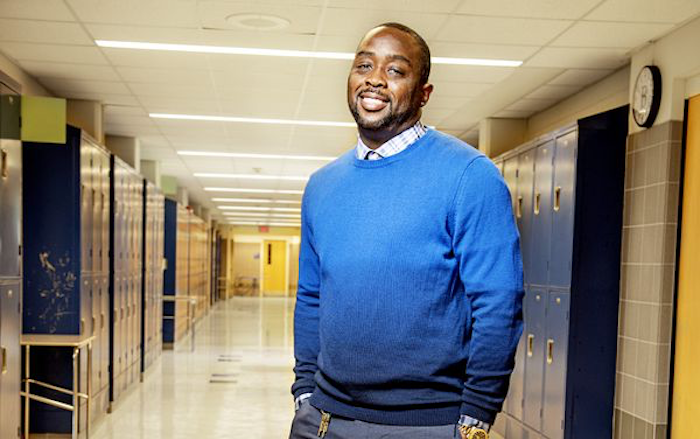Our dedication to Racial Equality and Social Justice (RESJ) spans decades. Learn more about our RESJ Initiative
Akil Mondesir Facilitates Dialogue Between Public School Educators and Students of Color Affected by Spread of COVID & Racial Injustice

What is METCO?
METCO, the Metropolitan Council for Educational Opportunity, is a voluntary one-way school desegregation program. The METCO program was created in 1966 to increase educational opportunities for Black (and later Latino, Asian, and Native American) students from the city and simultaneously expose white suburban students to more racial diversity. It now sits at the intersection of COVID-19 and racial injustice.
Last year METCO sent roughly 3,100 students from all grade levels, mostly Black and Latino children, to 33 predominantly white suburban school systems. These students are likely to have felt the most personal impact from the killing of George Floyd, a Black man, at the hands of a white Minneapolis officer in May, and by similar tragedies. Though young people of all backgrounds have been galvanized into action.
Meanwhile, the widespread harm caused by COVID-19, including job loss, has affected Black and Latino people disproportionately, with higher infection and death rates per capita. The unequal impact is continuing into the school year. Surveys taken this summer found that in districts with METCO students, those students, along with other Black, Latino, and Asian students living in those districts, picked full remote learning over hybrid learning at higher rates than white students. In suburban school systems, at least a third of METCO families wanted the remote option, compared with one-fifth overall. The racial divide was even wider in Boston, with more than half of Black, Asian, and Latino students wanting remote learning, compared with 27 percent of white students.
How do Bedford Public School's METCO students feel about the rising cases of racial injustice?
Floyd’s death also moved Parris Murdaugh, a Black seventh-grader and METCO student in Bedford, who is equally determined to find a way to speak up more about race issues this school year. “I’m really appalled at the world, at how people are treating Black people,” Murdaugh says.
Bedford’s schools are reopening in an atmosphere where students around the country are demanding that their schools become a part of the national examination of racism in institutions. Throughout the summer, students of color, including some in METCO programs, created social media posts and threads about racism they have experienced in school and elsewhere. Some, collaborating with white peers, urged their schools to broaden the curriculum as part of the #DiversifyOurNarrative movement created by a pair of Stanford University students.
Bedford Public School's METCO Director Akil Mondesir [MEd '18] urges educators to listen to the students...
Teachers and school leaders, says Akil Mondesir, Bedford’s METCO director, should take their cues from students. Early in the school year, Mondesir plans to schedule an online forum for METCO middle and high school students to tell their stories to faculty. "My message to the teachers would be, ‘Listen first,’ " says Mondesir, who graduated from Bedford schools through METCO. For many METCO students, Floyd’s death is all too raw and reminds them of their own experiences with racism. “If they’re not able to express themselves and express their stories, it’s going to fester . . . and destroy the person from the inside out. Being able to have that opportunity to say their story is so therapeutic. You may not be able to change everyone’s opinion, but you may be able to touch one person and have them understand,” he says.
Schools have to account for broader family concerns, too. Mondesir, whose 12-year-old daughter is a METCO seventh-grader in Bedford, is a case in point. His 68-year-old father, who lives with him in their Roxbury home, was recently diagnosed with cancer, and Mondesir is hypersensitive about not infecting him. He takes every precaution he can to protect his father, such as showering after he comes home before touching anything in the house.
Raised primarily by his grandmother in Roxbury when he went to Bedford schools, Mondesir also knows that many of the students he works with live with grandparents now. Families, including his own, have had to sort out whether it was worth the risk to send their children or keep them at home for remote learning. The METCO director met with bus drivers and was reassured about safety measures, including keeping windows cracked open and spreading students out so only siblings sit together. The usual bus ride to Bedford for METCO students will be shorter because they will not all go to school on the same two days.

